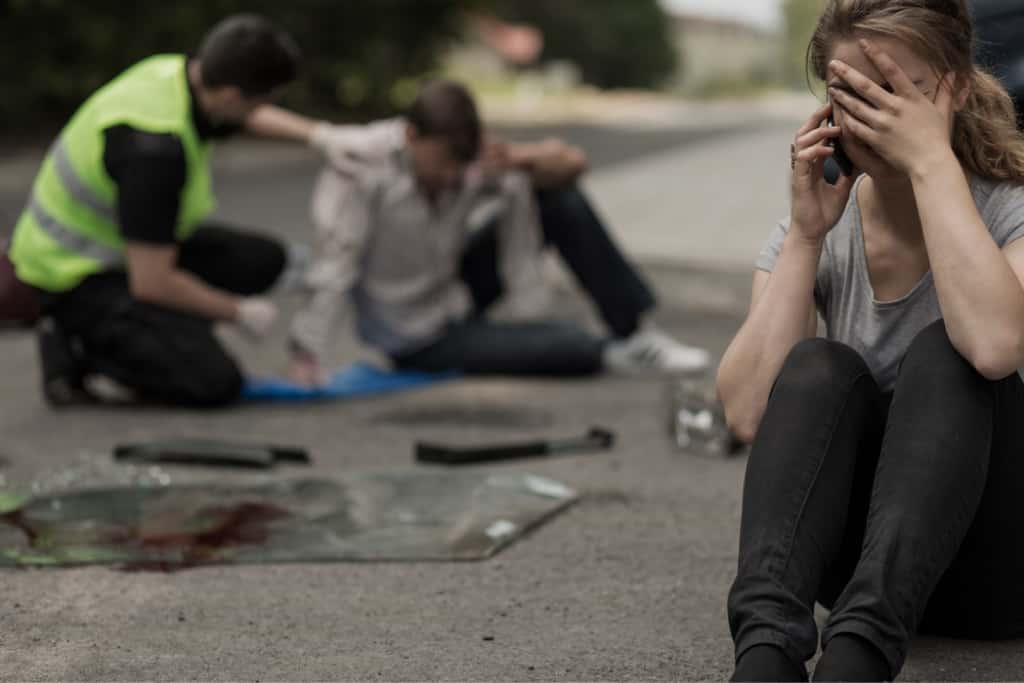What Should You Do If You’ve Been in a Car Accident? 8 Things You Should Know:
What Should You Do If You’ve Been in a Car Accident
The immediate aftermath of a car collision is almost never a pleasant experience; you may be disoriented, preoccupied, or in pain, and your emotions are likely to be running high. However, there are measures that you can take to protect yourself and get ready for a car insurance claim or a car accident lawsuit.
Step 1: Don’t leave the scene
Leave the accident scene only after exchanging information with the other parties involved. While the stop is important, make an effort to minimize obstructing traffic if the collision is minimal. However, if there is death, significant injury, or property damage, it is better to take photographs of the accident scene and wait for the authorities to arrive. Finally, remember that you must remain at the scene of the accident until all relevant information has been submitted.
Step 2: Call the police
If you’ve called 911, a police officer will likely be dispatched to the accident. Be as truthful as possible when talking to police officers, and avoid exaggerating your story. Report all that you remember, including the injuries you are currently feeling. All your answers will be filed in the police report to clarify that everything you have said will affect your legal claims.
Step 3: Make sure there aren’t any injuries
Ensure that you and your other passengers are okay. If it is safe to do so, the next step is to check on the well-being of the other drivers and passengers; if anyone appears to be hurt, you should immediately call 911. Additionally, your medical records are your best evidence that you had injuries from the car crash. By postponing medical attention after an automobile accident, you give the other driver’s insurance company the impression that your injuries weren’t serious and weren’t caused by the collision.
Step 4: Gather any possible evidence
Find potential witnesses to the crash and collect as much evidence as possible. Be sure to document any dents or scratches, skid marks, smudges on the road, unusually bright or dark clouds, and other factors that could have contributed to the accident. And if you have the ability to film the entire area, that would be ideal. Take down the information of any witnesses you see, especially the motorist you collided with, and do the same if you can identify any nearby vehicles.
Step 5: Take an ambulance
It should be the very least of your concerns that you have to pay for an ambulance ride. After being in a car accident, you should never try to drive yourself to the local hospital since there are certain very important indications and symptoms that you need to keep an eye out for. It is not a good idea to do that, regardless of how severely injured you are, because you may still be in a vulnerable situation, and you run the risk of getting into a second automobile accident while you are on your way to the hospital.
Step 6: Be careful with your words
Be careful about what you say at the scene of the vehicle accident, regardless of how you feel about the incident or what you believe may have contributed to the disaster. Do not concede guilt to the other driver, even if you are certain that you are the one at fault. It is possible that the facts will emerge later that will reveal that you were incorrect. However, if you accept fault at the accident scene, those statements can be used as evidence against you later on.
Step 7: Give and take insurance and contact information
Identify any other drivers who may have been involved in the collision and gather their names, contact information, driver’s license numbers, and insurance information (ex. company name, number, email). Take a picture of the other driver’s insurance card and driver’s license and send it to yourself through email or text message to avoid any mistakes in transcription or the loss of information if the driver is not the vehicle owner.
Step 8: Consult an attorney
How soon after a car crash should someone get in touch with a lawyer? Naturally, as quickly as you possibly can!
If your collision resulted in serious injuries or significant property damage, you should not sign anything that is sent to you by the attorney for the other driver or the insurance company without first consulting with a lawyer. It’s possible that the insurance company for the other party will take active measures to lower the settlement amount you’re requesting. If you have a reliable attorney defending your claims, you will be able to obtain the cash that you really deserve. The Law Office of Erica Gelfand is able to assist you in obtaining the just compensation that is due to you and in managing all of the legal paperwork that is required to establish who is at blame.
Call Now (480) 947-3525
Contact Us For a Free Consultation
Call Now (480) 947-3525

